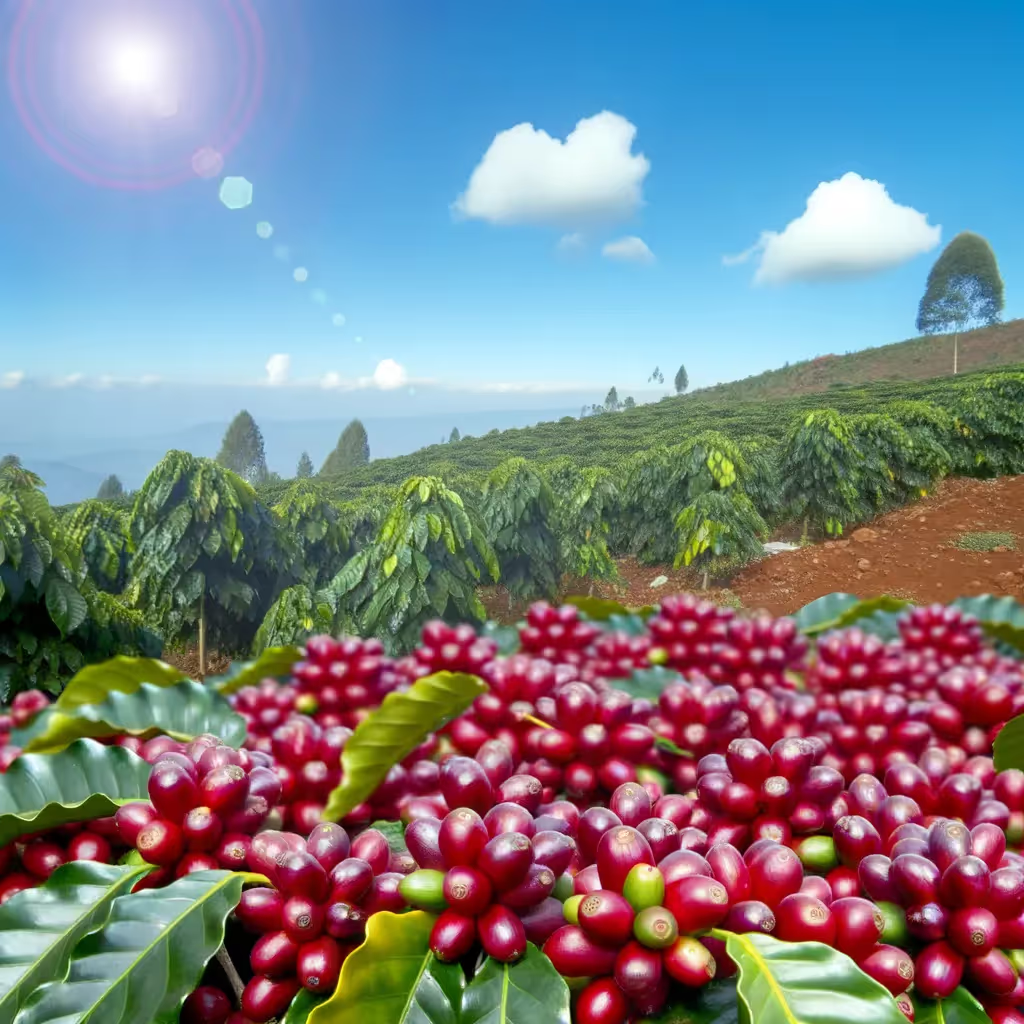Colombian Vs. Rwandan Coffee
This comparison explores the distinct qualities of Colombian and Rwandan coffee, highlighting their flavor profiles, growing conditions, and cultural significance in the specialty coffee world.

Brief Description
Colombian coffee is renowned for its rich, well-balanced flavor profile and medium body. Grown in the lush Andes Mountains, these beans benefit from ideal climate conditions and volcanic soil. Colombian coffee often exhibits a perfect harmony of acidity and sweetness, with notes of chocolate, nuts, and fruit. The country's dedication to quality and innovation in coffee production has earned it a reputation as one of the world's premier coffee origins.
Rwandan coffee is a hidden gem in the specialty coffee world, known for its bright acidity, complex flavors, and clean cup profile. Grown in the high-altitude regions of this small East African nation, Rwandan coffee benefits from rich volcanic soils and ideal growing conditions. The country's tumultuous history has given way to a thriving coffee industry, with smallholder farmers producing some of the most sought-after beans in Africa. Rwandan coffee is characterized by its tea-like body, citrus notes, and often floral or fruity undertones, making it a favorite among coffee enthusiasts seeking unique and vibrant flavors.
Importance of Comparison
Comparing Colombian and Rwandan coffee is crucial for coffee enthusiasts and buyers seeking to expand their palate. These origins represent diverse flavor profiles and production methods, offering insights into how geography, climate, and processing techniques influence coffee taste. Understanding their differences helps consumers make informed choices and appreciate the nuances of single-origin coffees.
Key Attributes
Origin
Colombian
Rwandan


Consumer Guide
When choosing between Colombian and Rwandan coffee, consider your flavor preferences. Colombian coffee offers a well-balanced, medium-bodied experience with chocolate, caramel, and citrus notes, ideal for those who enjoy a classic, versatile cup. Rwandan coffee, with its bright acidity and complex flavors of citrus, floral notes, and red berries, appeals to adventurous palates seeking unique taste experiences. For brewing, both excel in pour-over and French press methods, but Colombian beans are particularly suited for espresso, while Rwandan shines in cold brew. Consider trying both origins in various brewing methods to fully appreciate their distinct characteristics and find your perfect match.
Expert Opinions
Coffee expert Maria Rodriguez notes, 'Colombian coffee's consistency and balance make it a crowd-pleaser, while Rwandan coffee's vibrant acidity and complex flavors offer an exciting sensory experience.' Roaster John Smith adds, 'The terroir of Colombia's Andes Mountains imparts a rich, full-bodied quality to the beans, whereas Rwanda's high-altitude volcanic soils contribute to the coffee's bright, clean cup profile. Both origins showcase the best of their respective regions.'
FAQs
Conclusion
Colombian and Rwandan coffees offer distinct and rewarding experiences for coffee lovers. Colombian beans provide a classic, well-balanced profile with chocolate and caramel notes, perfect for those seeking a versatile, crowd-pleasing cup. Rwandan coffee, with its bright acidity and complex flavors, appeals to adventurous palates looking for unique taste experiences. Both origins showcase high-quality beans and diverse processing methods, making them excellent choices for exploring the world of specialty coffee. Whether you prefer the rich tradition of Colombian coffee or the emerging excellence of Rwandan beans, both origins promise a delightful journey through flavor and culture.






